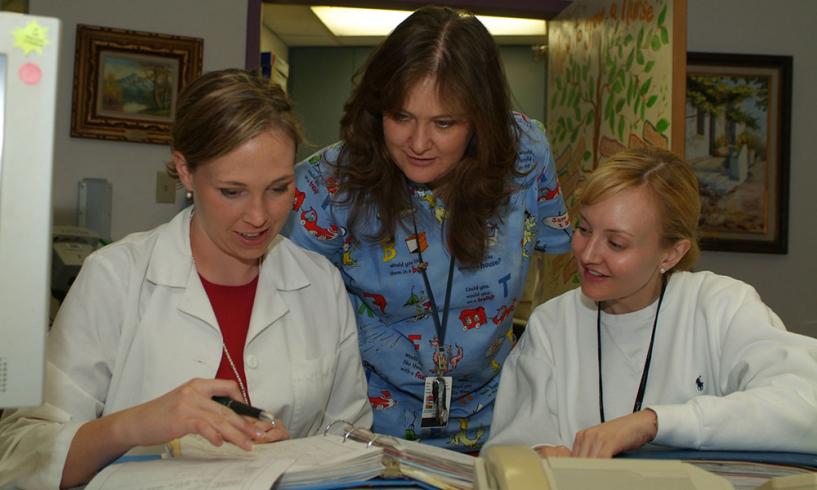Since ONS and the Oncology Nursing Certification Corporation (ONCC) conducted the first role delineation study (RDS) in 2011, the oncology nurse navigator (ONN) role has continued to change.
Cancer care has evolved, and focus on care coordination has increased to improve quality and reduce costs. In 2012, the Commission on Cancer (CoC) introduced its Standard 3.1: Patient Navigation Process. Although the CoC standard did not indicate that a nurse navigator was required, many institutions rushed to add or expand the ONN role. This rapid expansion, as well as shifting priorities in patient navigation, made it difficult to clearly define the ONN role. What began with screening and diagnosis has extended across the entire cancer care continuum. In certain practice settings, ONNs are not only responsible for CoC Standard 3.1 but also the CoC Continuum of Care Cancer standards for psychosocial distress screening and survivorship care plans.
These shifting dynamics prompted discussions by ONS’s and ONCC’s boards of directors related to the knowledge and skills for the ONN role. At the same time, we were responding to questions from members about the possibility of a certification in navigation. Although the 2011 RDS identified a set of tasks specific to the ONN role, it did not provide the data to define a unique knowledge and skill set that could be differentiated from those performed by nurses who held other ONCC certifications, most specifically the OCN® credential. Taking this information into account, earlier in 2016 we commissioned a new RDS to define the current ONN role and determine the need for development of an ONN certification examination.
A successful RDS follows a rigorous and defined process to provide legal defensibility and assurances that the task, knowledge, and skill requirements are derived from clearly prescribed steps, and not built on bias or vested interests. ONCC and ONS partnered with Prometric, a firm with extensive experience in role delineation and test development, to facilitate the 2016 ONN RDS process and collect and analyze the data. An article, “Oncology Nurse Navigation: Results of the 2016 Role Delineation Study,” was published last week in the online version of the Clinical Journal of Oncology Nursing that details the methodology, survey development and dissemination, and demographics, data, and findings.
The results of the study validated that the ONN role has evolved since 2011. New tasks were identified related to psychosocial care, advanced care planning, genetic counseling, educational plans and programs, and patient adherence. The data also indicated that although the role of the ONN and that of a clinical or staff nurse differ, they also overlap in certain areas such as providing psychosocial support, ensuring quality patient care, and delivering evidence-based education.
Although the RDS did identify unique tasks for both roles, and new tasks for the ONN, the knowledge and skills required to perform the two roles continue to be the same. Seventy-four percent of the knowledge statements on the 2016 ONN RDS were an exact match or aligned with very similar items when compared to the OCN® Test Content Outline. Because of these factors, ONCC decided that the results do not support the need for a separate and unique ONN certification.
ONS is the professional home for oncology nurses. We are governed by our members and we ensure that we are providing exemplary programs and resources to meet their needs. ONS is in the process of updating the ONN Core Competencies, which will reflect the tasks, knowledge, and skills identified in the 2016 ONN RDS. It continues to be ONS’s position that nurses in ONN roles should possess certification through one of the National Commission for Certifying Agencies–accredited certifications that ONCC offers—minimally, Oncology Certified Nurse (OCN®).
ONCC is committed to excellence in adhering to accreditation standards when developing new certifications and will remain true to its mission of promoting health and safety by validating competence and ensuring lifelong learning in oncology nursing and related specialties.
The Nurse Navigator Community continues to be a voice for ONNs, and our boards of directors appreciate their ongoing leadership and collaboration in developing the role. Although a separate certification in oncology nurse navigation is not currently needed, ONCC and ONS remain committed to monitoring the changing landscape of care coordination and will continue to have ongoing collaboration regarding developing roles in oncology.






